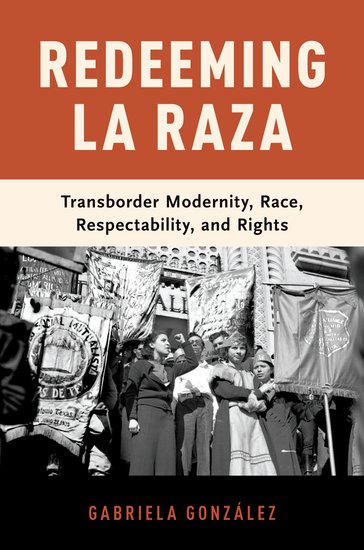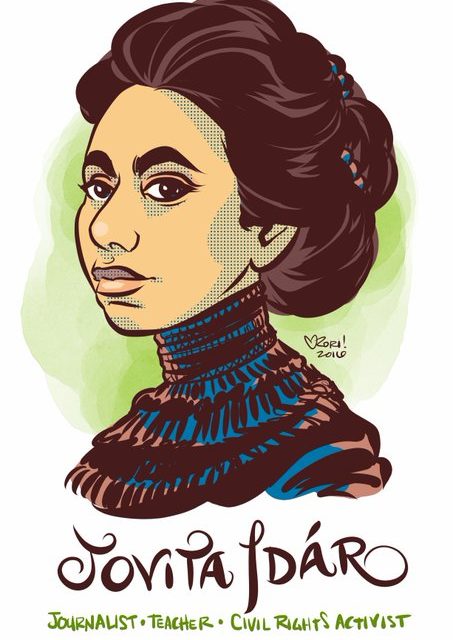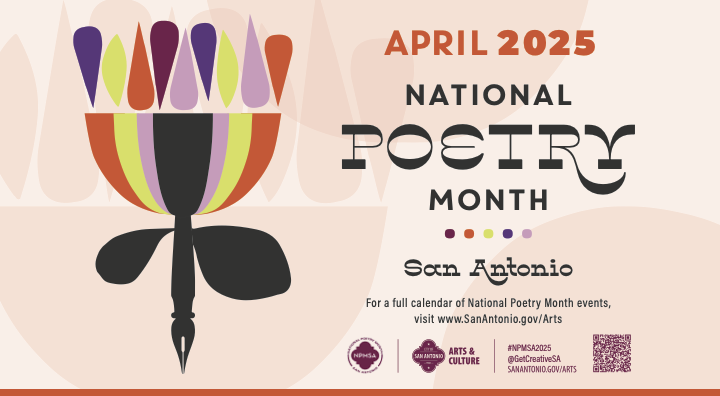Excerpts about Jovita Idar from the award-winning book, “Redeeming La Raza:
Transborder Modernity, Race, Respectability and Rights,” by Dr. Gabriela González
Foreword By R. Eguia
This month,the staff of La Prensa Texas have looked back on the accomplishments of the Latinx people in this state that have paved the way for us to grow. As a long time reporter who studied journalism in college, I was so surprised to just now be learning of the accomplishments of the Laredo born, Tejana Icon, Jovita Idar.
The book,“Redeeming La Raza: Transborder Modernity, Race, Respectability and Rights,” by Dr. Gabriela González provides so much context for the historical significance of bilingual community newspapers in this region and the role that Tejana women played in sustaining them. Idar operated many critical bilingual publications in the early 1900s before women were even allowed to vote.
La Prensa was established in San Antonio in 1913 as a newspaper and later included many art editorials that can be viewed in the “This Day in La Prensa History” column of this publication. It makes me wonder if she ever contributed to La Prensa when she lived in San Antonio.
Learning about her story has not only informed the work that I do for this paper and our community, but has also inspired me to work harder than ever to strengthen the foundations of this historical publication so that its legacy lasts for as long as San Antonio does.
Idar believed that if, “Mexicans could become more educated, they would no longer be marginalized in the United States,” González wrote in an essay on “Texas Women: Their Histories, Their Lives,” and I couldn’t agree more.
While she lived in San Antonio she organized El Club Demócrata within the local Democratic Party, founded a free nursery school, was an interpreter at the Robert B. Green Memorial Hospital, was a leader at La Trinidad United Methodist Church and co-edited and wrote for El Heraldo Cristiano, a publication of the Rio Grande Conference of the Methodist Church.
Places really do hold energies with their histories. I purchased a print of a depiction of Idar that now hangs in my office so that I can share her story with everyone who visits me. Her story edifies my Tejana role today.
Dr. Gabriela González has extracted the following excerpt about Jovita Idar from her award- winning book, “Redeeming La Raza: Transborder Modernity, Race, Respectability and Rights” :
“The three eldest Idar children, Clemente, Jovita, and Eduardo, became prominent in public life through journalism. They wrote articles for La Crónica until 1914, when the newspaper ceased operations. Clemente and Jovita wrote from Laredo, while Eduardo served as a correspondent from Brownsville. At various points Jovita and Eduardo either worked for or started other newspapers, such as the Spanish-language newspaper in Laredo entitled Evolución, which enjoyed a wide readership in Texas, Mexico, Cuba, and other Latin American countries. Brother and sister teamed up to report on the Mexican Revolution and World War I.
During the Mexican Revolution, Federico and his older sisters Jovita and Elvira joined Leonor Villegas de Magnón’s Cruz Blanca (White Cross), a medical organization that traveled with the forces of revolutionary leader Venustiano Carranza.
Like her brothers, Jovita learned to harness and focus her energies and talents at an early age. According to her niece, Nicasio took great pride in his daughter’s intelligence and delighted in her strong will. Besides sending her to Holding Institute, a school known for its excellence in English language instruction, Nicasio had educated her at the Domínguez Institute. There, a specialist in foreign languages, Professor Simon G. Domínguez, taught and mentored Jovita. Jovita’s mother, with whom she shared her name, also showed her young daughter much love and appreciation. The world that nurtured the Idar children was a far cry from the world of racial discrimination, poverty, and violence that they would devote their lives to changing. Their world included books, music, church, family, vacations in Mexico, and, above all, the guidance of kind and community-oriented parents.
 In the course of their activism, members of the Idar family faced considerable dangers during an era of revolution and diplomatic tensions. Clemente‘s life was threatened at least twice, and Federico’s assassination appeared to be politically motivated. Jovita Idar faced grave danger as well. In 1914, Mexican revolutionary Manuel García Virgil wrote an editorial piece for a Laredo newspaper, El Progreso, criticizing the Woodrow Wilson administration’s military intervention in Veracruz. In retaliation, the Texas Rangers set out to destroy the office and printing presses of El Progreso. Jovita was on the newspaper’s staff at the time, and the intrepid writer stood before the Rangers in defiance, daring them to knock her down. The Rangers backed down, but they returned early the next morning to destroy the building and equipment and arrest the workers. According to Aquilino Idar, the Texas Rangers found Manuel García Vigil, beat him severely, put him in jail, and later tried to lynch him. Nicasio Idar, the justice of the peace at the time, contacted a friend, District Judge John F. Mullally, who ordered the release and hospitalization of García Virgil.
In the course of their activism, members of the Idar family faced considerable dangers during an era of revolution and diplomatic tensions. Clemente‘s life was threatened at least twice, and Federico’s assassination appeared to be politically motivated. Jovita Idar faced grave danger as well. In 1914, Mexican revolutionary Manuel García Virgil wrote an editorial piece for a Laredo newspaper, El Progreso, criticizing the Woodrow Wilson administration’s military intervention in Veracruz. In retaliation, the Texas Rangers set out to destroy the office and printing presses of El Progreso. Jovita was on the newspaper’s staff at the time, and the intrepid writer stood before the Rangers in defiance, daring them to knock her down. The Rangers backed down, but they returned early the next morning to destroy the building and equipment and arrest the workers. According to Aquilino Idar, the Texas Rangers found Manuel García Vigil, beat him severely, put him in jail, and later tried to lynch him. Nicasio Idar, the justice of the peace at the time, contacted a friend, District Judge John F. Mullally, who ordered the release and hospitalization of García Virgil.
Jovita Idar trained as a teacher and was gifted with excellent teaching skills and instincts. She also became the publisher of a weekly bilingual educational magazine, El Estudiante (The Student), and devoted much of her energy to political journalism and civil rights activism. She played an active role in the Mexicanist Congress as an organizer and president of The League of Mexican Women.
After her marriage to Bartolo Juárez in 1917, the couple moved to San Antonio where both joined the Democratic Party. Jovita Idar Juárez served as a precinct judge for many years. Few Mexicans served as election officials during the 1920s and 1930s, so for a Mexican American woman to serve as precinct judge was extremely rare. Her commitment to activism superseded her husband’s, who seemed content to stand back and offer moral support. As she had done in Laredo, Jovita opened a school in San Antonio. She also worked as an interpreter for Spanish-speaking patients in a county hospital and brushed up on her Italian by writing articles for La Voce de la Pattria, a San Antonio Italian language newspaper.
Always a devout Methodist, she became active in La Trinidad Methodist Church. She served as conference president of the United Methodist Women and co-edited El Heraldo Cristiano (The Christian Herald), an organ of the Rio Grande Conference of the Methodist Church. Her views on women and gender reflected a nineteenth century concept of maternal Christian authority. In an article for El Heraldo Cristiano, Jovita reminded her female readers about their special responsibility as women and as Christian mothers. The home, the church, and the state all formed an important part of universal education, but she argued that the education a child received at home from the mother represented the most important factor.
In addition to providing them with economic resources and superb bilingual education, Nicasio Idar further solidified his children’s destinies by actively mentoring them. He devoted much time to the education and edification of each of his nine children.
Nicasio Idar taught his children the dual message of mutualism (helping other Mexicans) and free thought that informed his own activism.”
captions for the Book photo:
*Recipient of the TSHA Coral Horton Tullis Memorial Prize for Best Book on Texas History.
*Co-Recipient of the TSHA Liz Carpenter Award for Best Book on the History of Women.
*Recipient of the WCHF Jim Parish Award for Documentation and Publication of Local and Regional History.
*Recipient of the TGSA Tejano Book Award in honor of Dr. Cleotilde P. García
*Finalist for the David J. Weber-Clements Center Prize
Publisher: Oxford University Press (July 17, 2018)
ISBN-10: 0199914141
Jovita Idar depicted by Missouri artist Rori De Rien in her 100 women series where she drew one influential woman from history every day for 100 days, starting the hashtag #100Women100Days. To purchase prints please visit https://www.giantkittenhead.com/100-days-100-gallery and follow the artist on twitter @RoriComics











